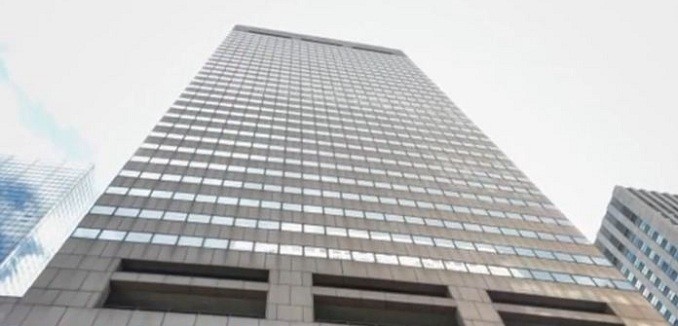With many analysts and politicians crediting the international sanctions regime for bringing Iran to the negotiating table – and with Iranian President Hassan Rouhani focusing on sanctions in a speech that many panned as angry and combative – analyst attention is turning to the degree to which trade and financial restrictions could be unwound in the context of a deal between Iran and the West.
One complicating factor is that Iran’s global terror infrastructure and its domestic human rights violations have seen it subject to the sanctions that have nothing to do with its nuclear program. There are reasons to doubt that Rouhani is willing and able to alter Iran’s behavior in either of these two areas.
The Wall Street Journal has described how Rouhani “chaired Iran’s National Security Council between 1989 and 2005, meaning he was at the top table when Iran masterminded” several spectacular global terror attacks.
Earlier this month a federal judge found that the Alavi Foundation was in violation of U.S. sanctions on Iran. The case stretched back to 2008, when the Treasury Department designated the Assa Corporation for serving as a front for Iranian controlled Melli Bank and its involvement of money laundering for Iran. At the time, counter-terror specialist Matthew Levitt described the move as “a shot across the bow” of the Alavi Foundation, which co-owned a 36-story Fifth Avenue building with the Assa Corporation.
The judge’s ruling from earlier this month did indeed setup the building to be seized by the Justice Department. If Justice does, it would be the largest terrorism-related forfeiture ever.
As far as domestic policies are concerned, Rouhani has repeatedly called for the imprisonment – and the execution – of anti-regime dissidents. Rouhani’s Minister of Justice, Mostafa Pourmohammadi was Deputy Minister of Intelligence from 1987-1999 ,and in 1988 acted as the Ministry of Intelligence’s representative on a 3-person panel that oversaw the torture and execution of literally thousands of Iranian prisoners.
The summer had already seen Treasury issue sanctions against Asghar Mir-Hejazi, Ayatollah Ali Khamenei’s deputy chief of staff, for alleged human rights abuses. Treasury described him as “one of the primary officials in the oppression following the June 2009 post-election unrest.” Dozens of other Iranian government officials were also sanctioned at the time, for abuses including “the use of communications technology to silence and intimidate the Iranian people.”
To be sure, Iran is also subject to sanctions by U.S. lawmakers related to its nuclear program. The House of Representatives this summer passed the Iran Nuclear Prevention Act – ratcheting up sanctions on Iran’s oil, mining and construction industries – by a vote of 400-20.
On the Senate side, August saw 76 Senators signing a letter to Obama urging him to exert greater pressure specifically on Iran’s clandestine nuclear activities. The letter – initiated by Foreign Relations Committee chairman Sen. Robert Menendez and signed by among others Middle East subcommittee chair Sen. Tim Kaine (D-VA) – outlined a minimum set of elements that would be necessary to reassure U.S. lawmakers. It emphasized the need for a convincing threat that the U.S. could and would use force to prevent Tehran from rushing across the nuclear finish line.
Meanwhile the Senate is working on parallel legislation to the House’s Iran Nuclear Prevention Act. A bipartisan group of Senators have already introduced legislation aiming to close loopholes in efforts to prevent Iran from accessing billions of dollars worth of foreign currency reserves. It would specifically target reserves held mostly in euros that Iran uses to get around oil sanctions. The proposed legislation was explicitly designed to curb Iran’s nuclear program, and analysts noted as much at the time.
[Photo: NewsyHub / YouTube]




